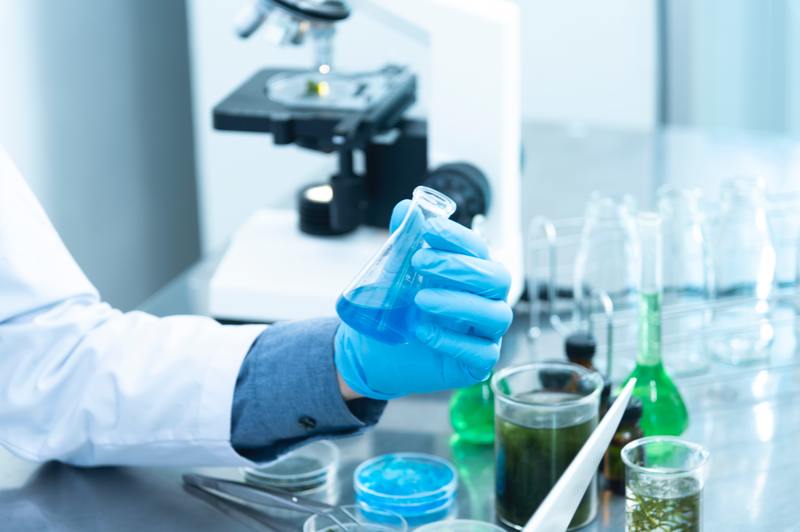If you are seeking pest control services from Moxie, perhaps one of the questions you have in mind is, “what chemicals does Moxie Pest Control use?”
Whether organic or inorganic, pesticides can be dangerous if not utilized properly. Before you avail service for your pest problems, it would be better to understand the products they use first.

In this way, you will be aware of the possible risks these chemicals come with and what you can do to ensure the safety of family and pets.
What Chemicals Are Usually Used In Pest Control?
Pest exterminators use pesticides to treat pest problems, and they usually list the active ingredients for several reasons. These pesticides may pose potential health risks, and your hired pest control company should discuss these things with you, alongside what you can do to minimize harm and health impacts.
Usually, each company has its unique formula, but certain ingredients are primarily included in their professional-grade pesticides. This consists of the following chemicals:
Pyrethrin and pyrethroids
Among the most common active ingredients that you can find in insecticides is the Permethrin. It is one of the pyrethroids, a large class of chemical insecticides.
They mimic the effects of pyrethrins, which are pesticides commonly found in African and Australian varieties of Chrysanthemum flowers. Pyrethroids and pyrethrins are great for paralyzing and killing different kinds of insects.
There are at least 3,500 registered products that include pyrethroids and pyrethrins for mosquito control, agriculture, pet protection, and overall household insect mitigation. They are mostly safe for humans and other animals as they don’t trigger allergic reactions and asthma.
However, it is worth mentioning that they are poisonous to aquatic organisms, and it is not recommended to spray them close to water tanks.
Piperonyl butoxide
Piperonyl butoxide is another popular chemical added to insecticide agents. They can enhance the effect of pesticides and other chemicals by restraining insect metabolism.
Although EPA classifies this chemical as a potential carcinogen, they also noted that it has very low toxicity to humans. However, if accidentally ingested, it may cause diarrhea and vomiting.
Hydramethylnon
Pest control companies usually use Hydramethylnon as bait for termites, cockroaches, silverfish, ants, and crickets. It is a slow killer and takes three to four days to do the job after making the insects lethargic.
Aside from that, it also has a long-term effect as the insects can carry the poison to their colony while they are still alive. However, this chemical is listed as a possible carcinogen, but it has no significant danger to humans.
Accidental contact may irritate the respiratory tract and eyes.
Other popular chemicals
Aside from the chemicals mentioned above, professionals also use fipronil and Boric acid. The two are white powders with minimal harmful effects on humans if appropriately utilized.
Fipronil is mainly used to control beetles, roaches, ants, and similar insects. On the other hand, boric acid is incorporated in numerous insecticides.
Organophosphates like diazinon and chlorpyrifos were also common ingredients until the Environmental Protection Agency limited the use of these chemicals due to their toxicity.
Remember, chemical treatments are only one of the services provided by most pest control companies. Be sure to do your research as to what is pest control first, alongside the long-term impact and risks, before committing to one.
What Are The Chemicals Moxie Pest Control Uses In Their Services?
Moxie uses various active ingredients to fulfill treatment plans among residential and commercial lots. These are the most common chemicals in their services:
1. Telstar
Telstar is a widely used chemical by many professional companies and households. It has a long-lasting effect on pests but may potentially be moderately toxic to humans through inhalation and ingestion.
Although they claim that they tend to be safe for pets, it is worth noting that the product contains Bifenthrin, which is highly poisonous to dogs. It is also banned for usage in the European Union due to its thought to be a carcinogen.
2. Onslaugh
Onslaugh is an insecticide that can kill more than 200 varieties of pests, including ticks, fleas, roaches, flies, lice, silverfish, bedbugs, ants, wasps, termites, and more. It can be sprayed around the structures or injected into walls, cracks, and crevices for residual pest prevention.
You should not use them on animals, but they are generally safe for cats and dogs as long as the chemical has dried entirely before letting your pets enter the treated area. It would be best to follow the safety procedures before and after a chemical pest control treatment to ensure the safety of your family and pets.
3. Termidor
One thing to know about Termidor is it has fipronil as its active ingredient. It blocks living organisms’ brain receptors and nervous system upon ingestion, making it dangerous for unprofessional use.
The use of this chemical has been limited since 2001, but it is still being used in pest control. Homeowners can also buy them, but they are less in quantity.
They are toxic to people, dogs, and other animals, so it would be best not to use them unsupervised. As of today, they are banned in France, China, and Italy.
As for the organic products that they use, this includes the following:
- Eugenol oil
- Thyme oil
- Rosemary oil
- Peppermint oil
These oils are primarily used in aromatherapy, but they can also be great alternatives for chemical pesticides. Although they are safe to apply to skin and inhale, remember that accidental ingestion may cause detrimental effects like vomiting, seizures, tissue injury, coma, and damage to the kidneys and liver.
If you are unsure if you want to continue the service, there’s always something you can do by understanding how to cancel moxie pest control.
Conclusion
After knowing what chemicals does Moxie Pest Control use, you can now make an informed decision if they are the one to work with. Always do your research and ask informative questions regarding your pest problem.
